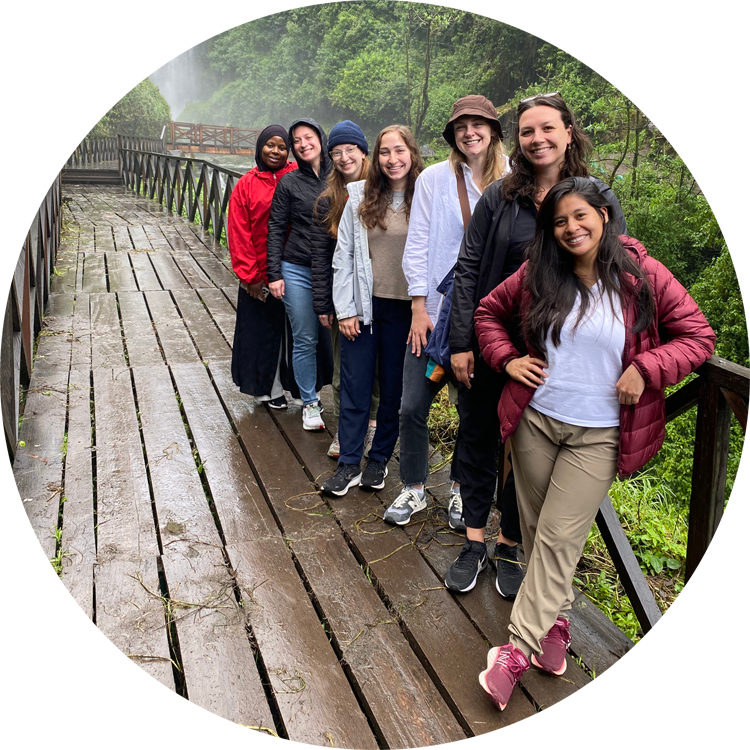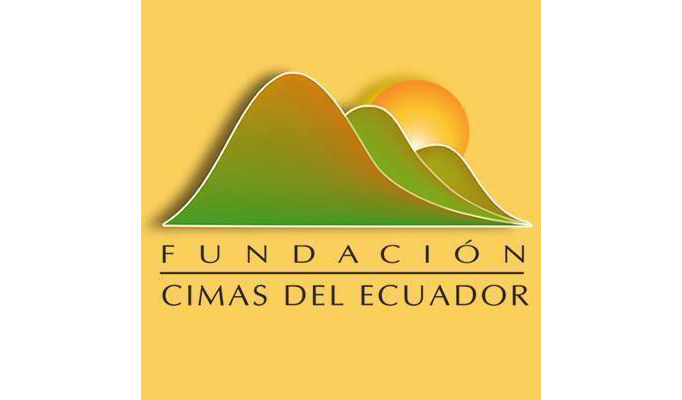Ecuador: Social, Environmental, and Cultural Determinants of Health
Travel to Quito, Ecuador to experience the diverse nature of global health and development and their impacts on Ecuadorian and Latin American life.
In this 2-week course (GHSR 6723), participants will learn about public health & health care infrastructure in Ecuador, including western & Indigenous health practices. Through field visits and classes with local faculty, students will experience key health topics in urban, rural, and Indigenous settings in Andean Ecuador. This course is taught in partnership with Fundación Cimas del Ecuador.
GLOBAL HEALTH STUDENT SPOTLIGHT
"There's so much to be said for an awareness of the diversity of what public health looks like around the globe and what health needs are more prevalent in certain areas."
Public health checked all the boxes for Leah Moat, MPH ‘21. Moat gravitated towards the field’s ability to accommodate her diverse set of interests. And on her recent trip to Quito, Ecuador, to study Latin America’s health systems, she was able to incorporate her broad skill set through a hands-on curriculum centered around bidirectionality in global health.

Ecuador: Social, Environmental, and Cultural Determinants of Health Course
This course is focused around the determinants of health in the context of Ecuador and Latin America.
- Discover alternative ways of imagining health and development based around Indigenous Andean studies of healing, agriculture, space, and time
- Explore Quito with field visits to places such as urban health centers, private and public hospitals, traditional healing centers, agricultural sites, and nearby rural communities
- Live with an Ecuadorian host family to become immersed in everyday life in Quito — and learn some Spanish!
Internship Opportunities
This course can include an additional 6-week internship component for students who are interested in developing an additional project related to global health, public health, health care delivery and/or other community activities. Internships may be eligible for Applied Practice, community practicum, field experiences, etc., depending on your exact program and degree requirements. Contact us to explore options.
Discover How to Apply
This is a 2-credit course, taking place May 12-24, 2024. The course is available for academic credit or non-credit enrollment, open to University of Minnesota graduate and professional students as well as UMN alumni, faculty, staff, and non-UMN community learners.
Eligibility
Eligibility
This course is open to:
- University of Minnesota graduate and professional students (post-baccalaureate)
- University of Minnesota faculty, staff, and alumni
- External community learners with interest and/or experience in health-related careers
All participants must apply, and have instructor approval, before they will be able to register.
Proficiency in Spanish language is not required to be eligible to participate.
Credit & Requirements
Credits & Requirements
UMN Students: Academic credit is available to UMN graduate students (2 credits) for the course GHSR 6723. It is up to the student to confer with their academic unit to determine if it meets their specific program requirements. Students may be allowed to apply this program to other academic requirements per approval by their unit.
Non-UMN Students: Faculty, staff, and alumni, and community learners may participate for non-credit enrollment.
Requirements
Students should plan to arrive in Quito the night of May 11. There will be an orientation day and a tour of Quito on May 12. Class starts on May 13. There will be a pre-departure orientation in April and a post-course debrief session in summer or fall (dates TBD per student availability).
All participants (credit and non-credit) are expected to complete the following assignments:
- Personal reflection and group debrief activities
- In-class discussion and participation
- Group presentation
- Professional poster creation
Program Fee
Program Fee
In addition to regular tuition rates for the 2-credit course, there is also a program fee for all participants in this course.
- 2024 course fee: $3,000
- Includes instruction, accommodation, most meals, local transportation, and international medical insurance
- Students may also register as non-credit learners and forego the 2 credit with GHSR 6723
CGHSR offers scholarships ranging from $500 — $2,000 for this course. To apply for a CGHSR Student Scholarship, complete the "Statement of need" section in your course application. Additional scholarships may also be available from students' department or college.
Additional costs not included in program fee:
- Academic credit (2 credits)
- Airfare
- Passport/photos
- Immunizations
- Some meals
- Essential daily living expenses
Dates and Location
Dates and Location
The course is held each year during May term.
2024 Dates
- Course dates: May 12 – 24, 2024
- Expected travel dates: Students should arrive in Quito, Ecuador, on Saturday, May 11, and start with an orientation day and tour of the city on May 12. Students are expected to stay in Quito through Friday, May 24.
- There is also a pre-departure orientation in April to review travel logistics, and a post-course debrief session in summer or fall 2024 (dates TBD).
- The daily schedule and meeting times vary by day while in Quito. The full schedule will be shared in the course syllabus prior to departure.
Application
Application
Applications for the 2024 course are now closed. Students who have been accepted in the course will be notified no later than Friday, March 29. If you have missed the application deadline and are still interested in applying, please contact Anna Pendleton at [email protected].
Course enrollment is limited to 20 participants. All interested participants must fill out the application. Following review, they will be given instructions to register with the Learning Abroad Center.
Application Process
- Download and fill out the application form document. When it is finished, upload it on the online Google Form application (now closed).
- Initial application review will begin in March, and then continue on a rolling basis.
- Once accepted, program staff will provide participants with instructions on how to complete the registration.
- If the course is full, applications will remain open until a sufficient wait list is obtained.
Scholarships
Scholarships
CGHSR offers scholarships ranging from $500 — $2,000 for this course. To apply for a CGHSR Student Scholarship, complete the "Statement of need" section in your course application. Additional scholarships may also be available from students' department or college. Learn more about our scholarships here.
Host Organizations
This course is offered in partnership with Fundación Cimas del Ecuador, a nonprofit organization that provides academic programs for students around the world. CIMAS’s academic programs link research projects and communities together in a search for an alternative type of development based on human welfare and a respect for nature.
